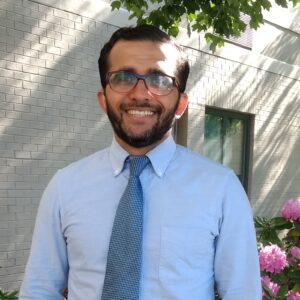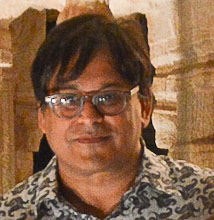Summer 2025 and Fall 2025 Graduate Student Instructor (GSI) and Reader positions for ISF courses are listed below. All positions are pending budgetary approval.
Fall 2025
GSI Positions (2 available)
Course: ISF 100A
Title: Introduction to Social Theory and Cultural Analysis
Instructor: Shreeharsh Kelkar
Class: #21638
Time: TuTh 330-5 pm, 212 Wheeler
2 GSIs needed
ISF 100A is an interdisciplinary introduction to social theory and cultural analysis. This course, required of all ISF majors but open to all students, provides an introduction to the works of foundational social theorists of the 19th and 20th centuries. Students will be asked to think through the theories of society proposed by particular thinkers, the settings in which these theories were proposed, and apply them to current events and everyday situations. The course is designed as a conversation between two grand theories that have played a key role in the structure of modern societies: liberalism and Marxism. We will also interrogate these theories by discussing how feminists and post-colonial theorists have critiqued them.
I require 2 GSIs for this course, preferably PhD students in History, Anthropology, Sociology, Rhetoric, or Information (or other departments) who are familiar with theories of liberalism, capitalism, feminism, post-coloniality, and others. They should have some acquaintance with thinkers like John Stuart Mill, Karl Marx, Charles Mills, Carole Pateman and Michel Foucault. Each GSI will be responsible for two sections of roughly 25 students each. In addition, GSIs will be expected to attend lectures and help me manage the classroom (including supervising the active learning activities by walking around the classroom), grade two essay assignments (1000-2500 words each), and one final exam.
The GSI position requires 20 hours a week (50%) and comes with a tuition waiver.
If this might be of interest, please send an email to skelkar@berkeley.edu with your CV. In the email (and ideally, also in the CV), please write a few sentences on your background, your familiarity with the topic based on your research or the courses you have taken, as well as your teaching experiences, especially here at Berkeley.
Reader Positions (1 available)
Course: ISF 100C
Title: Language and Identity
Instructor: Fang Xu
Class #25121
Units: 4
Days: MWF 1-2pm
This course examines the role of language in the construction of social identities, and how language is tied to various forms of symbolic power at the regional, national, and international levels. As the saying goes, “A language is a dialect with an army and navy” – but how so? Questions about language have been central to national culture and identity, and the languages we speak often prove, upon close examination, not to be the tongues of ancestors but invented traditions of political significance. People have also encoded resistance into non-official and ambiguous languages even as the state has attempted to devalue them as inferior forms of expression. Drawing on case studies from Asia, Europe, and North America, we will pay special attention to topics such as the legitimization of a national language, the political use of language in nation-building processes, the endangerment of indigenous languages, and processes of linguistic subordination and domination. This course will be interdisciplinary in its attempt to understand language in terms of history, politics, anthropology, and sociology. We will not only study how language has been envisioned in planning documents and official language policy, but also analyze how speakers enact, project, and contest their culturally specific subject positions according to their embodied linguistic capital.
We require a reader for this course, preferably someone who is familiar with sociolinguistics or linguistic anthropology, or sociology of language, cultural anthropology. The reader will be expected to attend lectures, grade weekly reading responses, one empirical research-based paper (500-1000 words), and a final paper (1500 words). The class capacity is 60. Graduate students from sociology, anthropology, linguistics, public policy, political science, history, or related fields are welcome to apply.
If interested, please send an email to fangxu@berkeley.edu with your CV. In the application, please be sure to describe your teaching experiences, especially here at Berkeley.





